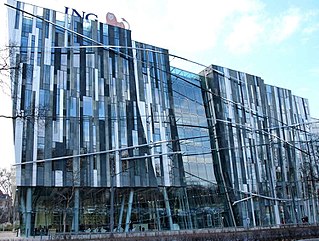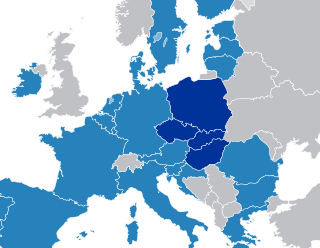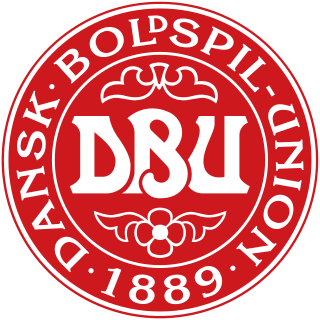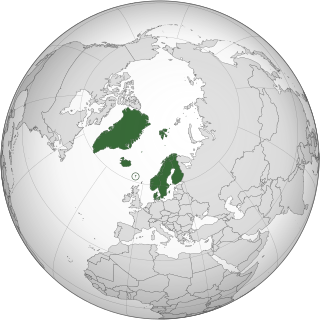Related Research Articles

The economy of Hungary is a high-income mixed economy, ranked as the 9th most complex economy according to the Economic Complexity Index. Hungary is a member of the Organisation for Economic Co-operation and Development (OECD) with a very high human development index and a skilled labour force, with the 13th lowest income inequality in the world. The Hungarian economy is the 54th-largest economy in the world with $265.037 billion annual output, and ranks 43th in the world in terms of GDP per capita measured by purchasing power parity. Hungary has an export-oriented market economy with a heavy emphasis on foreign trade; thus the country is the 35th largest export economy in the world. The country had more than $100 billion of exports in 2015, with a high trade surplus of $9.003 billion, of which 79% went to the European Union (EU) and 21% was extra-EU trade. Hungary's productive capacity is more than 80% privately owned, with 39.1% overall taxation, which funds the country's welfare economy. On the expenditure side, household consumption is the main component of GDP and accounts for 50% of its total, followed by gross fixed capital formation with 22% and government expenditure with 20%.
The economy of Eswatini is fairly diversified. Agriculture, forestry and mining account for about 13 percent of Eswatini's GDP whereas manufacturing represent 37 percent of GDP. Services – with government services in the lead – constitute the other 50 percent of GDP.

The economy of Switzerland is one of the world's most advanced and highly-developed free-market economies. The service sector has come to play a significant economic role, particularly the Swiss banking industry and tourism. The economy of Switzerland ranked first in the world in the 2015 Global Innovation Index and third in the 2020 Global Competitiveness Report. According to United Nations data for 2016, Switzerland is the third richest landlocked country in the world after Liechtenstein and Luxembourg. Together with the latter and Norway, they are the only three countries in the world with a GDP per capita (nominal) above US$70,000 that are neither island nations nor ministates.

The Visegrád Group is a cultural and political alliance of four Central European countries: the Czech Republic, Hungary, Poland, and Slovakia. The alliance aims to advance co-operation in military, economic, cultural and energy affairs, and to further their integration with the EU. All four states are also members of the European Union (EU) and the North Atlantic Treaty Organization (NATO).

The Denmark national football team represents Denmark in men's international football competition. It is controlled by the Danish Football Association (DBU), the governing body for the football clubs which are organised under DBU. Denmark's home stadium is Parken Stadium in the Østerbro district of Copenhagen; their head coach is Kasper Hjulmand.

KSV Hessen Kassel is a semi-professional German football club based in Kassel, Hesse. KSV competes in the German Regionalliga Südwest, the fourth tier of German football. Nicknamed "Die Löwen", the club was founded as FC Union 93 Kassel in 1893. A series of mergers, insolvency and re-starts led to the club known today being re-formed on 3 February 1998. The club's colours are red and white and their home ground since 1953 has been the Auestadion, located in the southwest of the city of Kassel next to the historic Karlsaue park.

SG Wattenscheid 09 is a German association football club located in Wattenscheid, Bochum, North Rhine-Westphalia. The club claimed an official founding date of 18 September 1909 as Ballspiel-Verein Wattenscheid out of the merger of two earlier sides known as BV Sodalität der Wattenscheid and BV Teutonia Wattenscheid.

General Motors Europe was the European subsidiary of the American automaker General Motors ("GM"). The subsidiary was established by GM in 1986 and operated 14 production and assembly facilities in 9 countries, and employed around 54,500 people. GM's core European brands were Vauxhall and Opel, which both sell much the same range of cars in different markets. GM also owned the Swedish brand Saab until early 2010 and sold Chevrolet models between 2005 and 2015. The U.S. brand Cadillac is imported into Europe in small quantities. In 2009, General Motors (GM) announced to move its European headquarters from Zürich, Switzerland to Rüsselsheim, Germany to strengthen its German subsidiary Opel.
Courtaulds was a United Kingdom-based manufacturer of fabric, clothing, artificial fibres, and chemicals. It was established in 1794 and became the world's leading man-made fibre production company before being broken up in 1990 into Courtaulds plc and Courtaulds Textiles Ltd.

Burlington Industries, formerly Burlington Mills, is a diversified American fabric maker based in Greensboro, North Carolina. Founded by J. Spencer Love in Burlington, North Carolina in 1923, the company has operations in the United States, Mexico, and India and a global manufacturing and product development network based in Hong Kong with over 8000 employees on several sites in the United States, Canada and worldwide.
Platt Brothers, also known as Platt Bros & Co Ltd, was a British company based at Werneth in Oldham, North West England. The company manufactured textile machinery and were iron founders and colliery proprietors. By the end of the 19th century, the company had become the largest textile machinery manufacturer in the world, employing more than 12,000 workers.

Ames Department Stores Inc. was an American chain of discount stores based in Rocky Hill, Connecticut, United States. The company was founded in 1958 with a store in Southbridge, Massachusetts, and at its peak operated 700 stores in 20 states, including the Northeast, Upper South, Midwest, and the District of Columbia, making it the fourth-largest discount retailer in the country.
Pillowtex Corporation was a United States textile manufacturing company from 1954 to 2003. Beginning as a pillow manufacturer, the company diversified and manufactured bedsheets under various brand names. The company was officially declared bankrupt on October 7, 2003. The company liquidated over the following nine years, including machinery and brands.

Bulgaria is an industrialized nation with a developed heavy and light manufacturing industry. In 2007 industry accounted for 31.7% of the country's GDP. This makes industry the second largest sector of the economy after services. In 2007 the sector employed 33.6% of the labour force.
Pakistan's industrial sector accounts for 28.11% of the GDP. Of this, manufacturing makes up 12.52%, mining constitutes 2.18%, construction makes up 2.05%, and electricity and gas 1.36%. The majority of industry is made up of textile units, with textiles contributing $15.4b to exports, making up 56% of total exports. Other units include surgical instruments, chemicals, and a budding automotive industry.

Girangaon was a name of an area now part of central Mumbai, India, which at one time had almost 130 textile mills, with the majority being cotton mills. The mills of Girangaon contributed significantly to the prosperity and growth of Mumbai during the later nineteenth century and for the transformation of Mumbai into a major industrial metropolis. Girangaon covered an area of 600 acres (2.4 km2), not including the workers' housing. The mill workers lived in a community, and they fostered a unique culture which shaped Mumbai at the turn of the twentieth century. This textile industry flourished until the early 2000s after which most of the mills were shut down, as the owners deemed them unprofitable and declared they were incapable of paying their workers' wages.

The Nordic countries are a geographical and cultural region in Northern Europe and the North Atlantic. It includes the sovereign states of Denmark, Finland, Iceland, Norway and Sweden; the autonomous territories of the Faroe Islands and Greenland; and the autonomous region of Åland.

Rutland Mill was a cotton spinning mill on Linney Lane, in Shaw and Crompton, Greater Manchester, England. It was built by F. W. Dixon & Son in 1907 for the Rutland Mill Co. Ltd. It was taken over by the Lancashire Cotton Corporation in 1935. By 1964, it was in the Courtaulds Group. In the late 1980s, as Courtaulds moved operations to other parts of the world, the mill was bought by Littlewoods who demolished it and replaced it with a new automated storage warehouse.
The design, manufacture and export of textiles and apparel products is one of the biggest industries in Sri Lanka, and one which plays a key role in advancing the country's economy. The apparel industry of Sri Lanka employs about 15% of the country's workforce, accounting for about half of the country's total exports, and Sri Lanka is among the top apparel-producing countries in the world relative to its population.

TV Wattenscheid 01 Leichtathletik is a German sports club focused on athletics. Founded in 1971 in Wattenscheid, Bochum in the Western part of Germany, the club's history is linked to that of an older club, Turnverein Wattenscheid 01, a gymnastics club in the city which was formed in 1901. The club's main stadium for events and training is Lohrheidestadion.
References
- ↑ Klaus-Steilmann-In-Jahren-Wachstum Der Stern 07.06.2004
- ↑ "DBU - Prof. Dr.-Ing. H. C. Klaus Steilmann, Steilmanngruppe, Wattenscheid - Wegweisende Umweltstandards für die textile Kette". www.dbu.de. Archived from the original on 2006-10-05.
- ↑ Handelsblatt, 21 September 2006, Radici rettet Steilmann vor Insolvenz
- ↑ Sportmäzen Klaus Steilmann ist tot